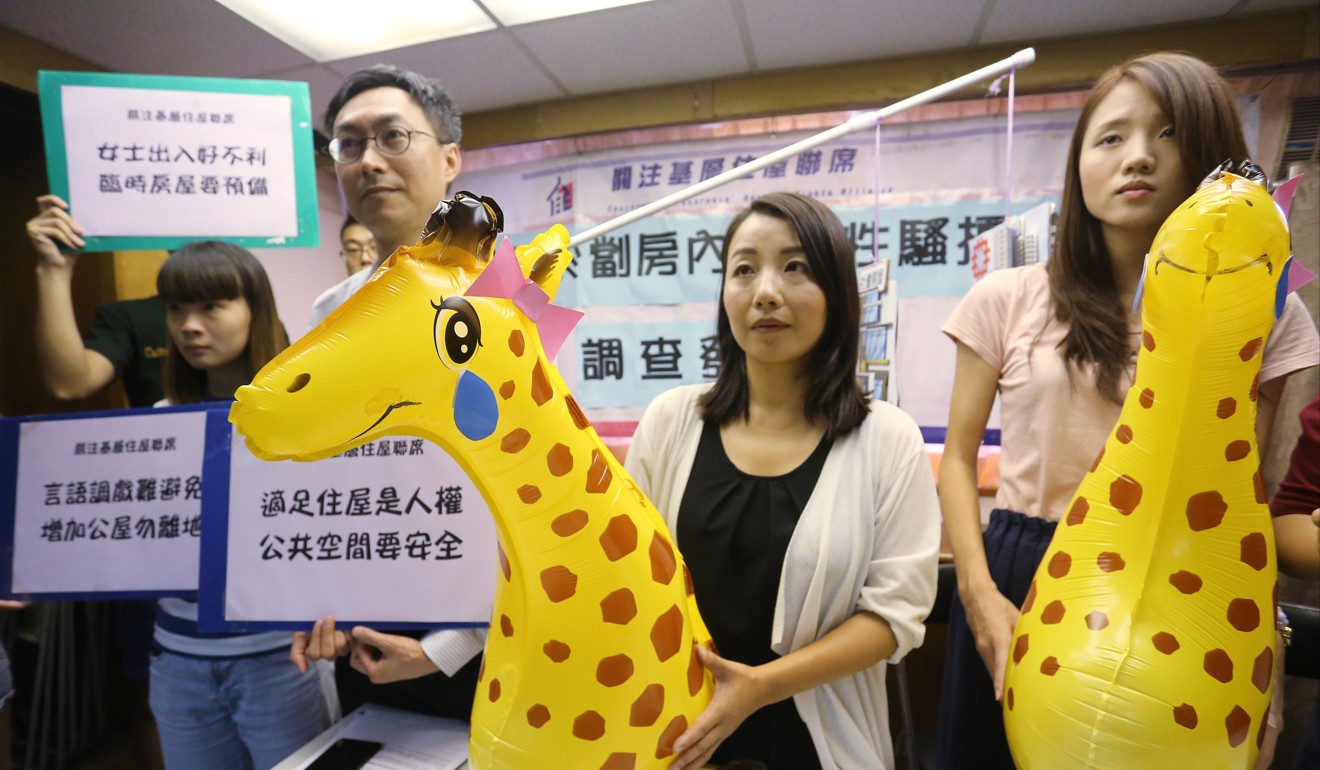
More than one in five women living in Hong Kong’s subdivided flats claim to have been sexually harassed, study shows
Calls to tighten city’s sex discrimination laws after non-profit group says many women have become victims of harassment at home
More than one in five women living in Hong Kong’s rundown subdivided flats that cluster in the city’s aged and poor districts say they have been sexually harassed, according to a concern group study.
The most common forms of harassment were crude sexual jokes, indecent exposure and displays of dirty pictures, the non-profit Concerning Grassroots’ Housing Rights Alliance, which interviewed 105 women living in subdivided flats between June and July, found.
Twenty-two of the women interviewed said they had been sexually harassed by neighbours at home.

In one case, a lodger, who preferred to be known as Vivian, in her 30s, said her neighbour was fond of wearing only his underpants in his room while leaving the door open. “He also liked to stare at me when I walked past his room,” she said.
The group urged that Hong Kong’s sex discrimination law be tightened to protect female lodgers.
Sexual harassment rife in Hong Kong churches, survey suggests
At present, the discrimination law does not cover sexual harassment between tenants or sub-tenants living or working in the same premises. The Equal Opportunities Commission has for years urged for a review of the law.
But in a document to the Legislative Council in June, the government claimed more consideration was needed.
“It is possible to catch people of separate lettings in the same building if a landlord owns the whole premises or building and leases different units therein to different people,” the Constitutional and Mainland Affairs Bureau paper stated. “In this context, we need to ensure that any proposed wrongful acts are clearly defined, so as to avoid confusion and unnecessary disputes which may follow.”
Life after death – in a subdivided flat: why paper replicas are big business for Hong Kong’s Hungry Ghost Festival
Jay Yam Chun, a community organiser at the Concerning Grassroots’ Housing Rights Alliance, rejected the government explanation as being “absurd”. She said: “Having to live in subdivided units is sad enough. What makes it worse is that women would face more risks living there.”
She also urged the government to build more public housing.
There is no legal definition of a subdivided flat in Hong Kong. But the term is commonly used to describe cases where one flat is partitioned into two or more self-contained cubicles. Many of the conversions are carried out illegally, but they are often the only option for poor families, especially those waiting for public housing.
According to official estimates, in 2016 there were about 210,000 people living in such subdivided units. About half were women.

